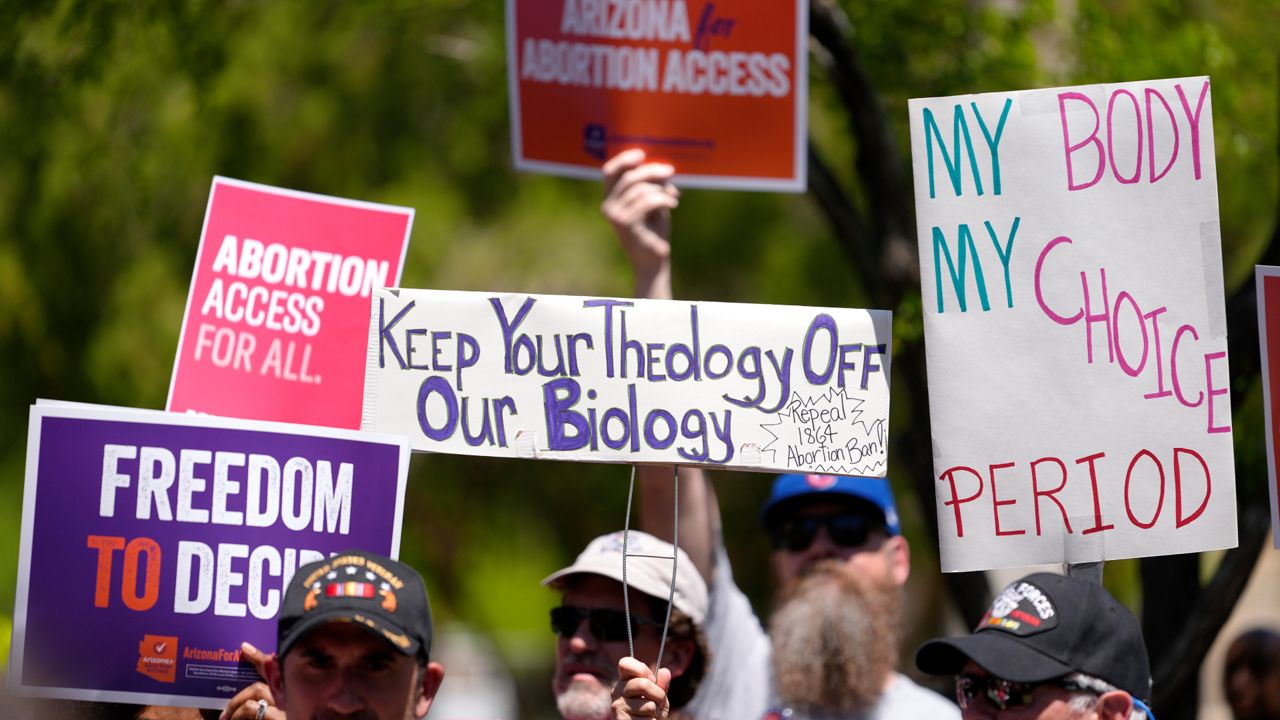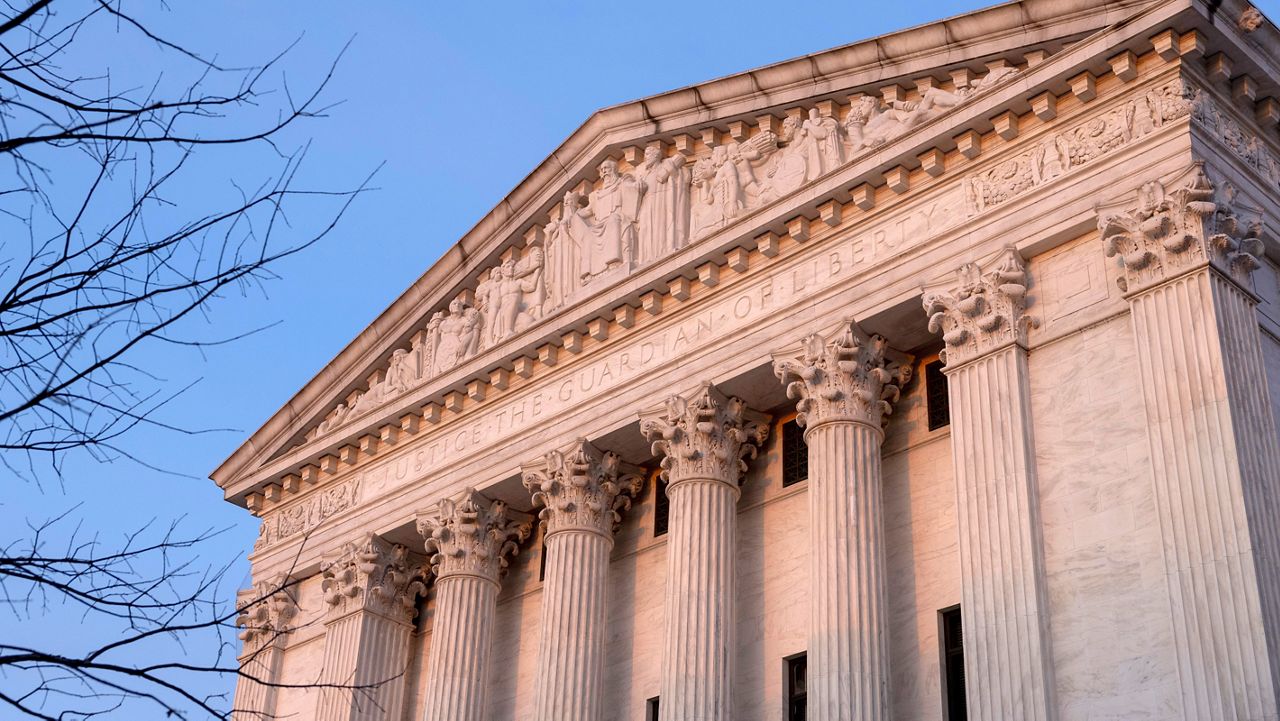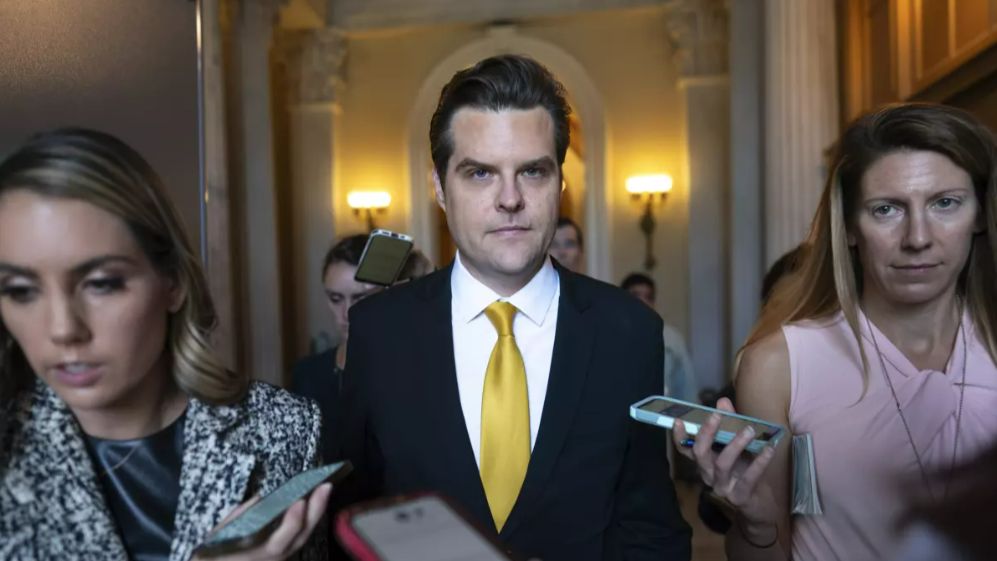Both President Joe Biden and former President Donald Trump are the only candidates to qualify for the upcoming CNN debate, and Sen. Ted Cruz joins the fight against AI-generated revenge porn.
RFK Jr. fails to qualify for CNN debate
Independent presidential candidate Robert F. Kennedy Jr. failed to qualify for next week’s presidential debate in Atlanta, according to CNN.
Only President Joe Biden and former President Donald Trump have met the network’s qualifications so far.
To be able to participate in the 90-minute debate in Atlanta on June 27, candidates needed to meet constitutional requirements to serve as president and to file a formal statement of their candidacy with the Federal Election Commission. In addition to Biden and Trump, independent candidates Kennedy, Cornel West and Green Party candidate Jill Stein meet that standard.
But none of the third-party or independent hopefuls meet the additional criteria CNN outlined in May. Candidates must have at least 15% of the vote in four approved national polls of likely or registered voters. They must also appear on the ballot in a sufficient number of states to receive 270 electoral votes — enough to win the election.
CNN said it will accept poll results from 12 organizations that meet its reporting standards, including ABC News, Fox News, Monmouth University and Quinnipiac University. Kennedy has met CNN’s 15% criteria in three of the four required polls, including a CNN poll from April (16%), a Quinnipiac University survey from April (16%) and a Monmouth University poll in April (18%).
He failed, though, to meet CNN’s criteria for ballot access. As of Tuesday, the Kennedy campaign said he is officially on the ballot in nine states, including California, Delaware, Hawaii, Michigan, Mississippi, Oklahoma, South Carolina, Texas and Utah, and has collected enough signatures to gain ballot access in 14 others, including Nevada and New York.
But The Washington Post contradicted those claims Wednesday, saying Kennedy is only on the ballot in five states that total 42 electoral votes, based on calls to election officials in the states where the Kennedy campaign says it has already secured access.
“The law in virtually every state provides that the nominee of a state-recognized political party will be allowed ballot access without petitioning," a CNN spokesperson told Spectrum News. "As the presumptive nominees of their parties, both Biden and Trump will satisfy this requirement. As an independent candidate, under applicable laws RFK, Jr. currently does not.
“The mere application for ballot access does not guarantee that he will appear on the ballot in any state," CNN said in a statement. "In addition, RFK, Jr. does not currently meet our polling criteria, which, like the other objective criteria, were set before issuing invitations to the debate.”
The first presidential debate between Biden and Trump is one week away, and more details about the event are coming into focus.
CNN, the network hosting the debate, said last week that a coin flip was set to determine the positioning of the podiums at which the current president and former president will stand.
The coin flip landed on Biden’s pick — which was tails — and his campaign chose to pick the podium on the right side of viewers’ television screens, while Trump will stand on the left.
Trump’s campaign chose to let the Republican ex-president deliver his closing statement last, so Biden will make his final pitch at next week’s debate first.
The debate will take place Thursday, June 27, at CNN’s studio in Atlanta — a key city in the crucial battleground state of Georgia. It will be moderated by anchors Jake Tapper and Dana Bash, and the roughly 90 minute debate will include two commercial breaks.
According to the rules, which were agreed upon by both candidates’ campaigns, candidates' microphones will be muted during the debate until it is their turn to speak, seemingly an effort to limit interruptions and crosstalk.
Additionally, there will be no audience at the debate, and no props or pre-written notes will be permitted. However, each candidate will be given a pen and a pad of paper with which to take notes, as well as a bottle of water.
North Texas teen victim of deepfakes joins push in Congress to stop spread of AI-generated explicit content
On Capitol Hill, a North Texas mother and her 15-year-old daughter lobbied for legislation protecting against deepfake revenge porn, which is sexually explicit images created by artificial intelligence to harm or embarrass someone. Elliston Berry traveled to the nation’s capital from Aledo, Texas, to share her story of being victimized by such manipulated images.
“I just really wanted to show and share my story, that way anybody that goes through this is able to know that they're not alone, and that justice will be served and that they will, like, make it through,” Elliston told Spectrum News.
Last fall, as a high school freshman, Elliston woke up one morning to a barrage of texts.
Someone used a program to alter innocent photos of her and her friends to be sexually explicit and then shared the images on social media.
“It was really fearful, and I was really scared to even go to school or just step out of my boundaries, step out of my circle," Elliston said. "And now that we are fighting to get these bills in place, it also creates just so much more relief as other people that are going through this are also able to get justice.”
Her mother, Anna McAdams, said part of the frustration was how long it took to get the images taken down.
“We always want to protect our child, no matter what, and we'll go to any extent to do that, and I think this AI offense showed me that there was really nothing we could do,” McAdams said. “I couldn't protect her in that moment, and it's out there, and could be out there for the rest of her life. But, you know, we just want to make the best of this and make sure that this doesn't happen to anybody else, or if it does, there's consequences to make somebody stop in their track.”
The student responsible for the images of Elliston was suspended and decided to leave the school. Charges against him will be dropped when he turns 18.
On Tuesday, Elliston and her mom joined Sen. Ted Cruz, R-Texas, and other sponsors for the introduction of the Take it Down Act. The bipartisan bill would criminalize the publication of non-consensual intimate imagery. It would also require social media platforms to develop procedures to remove the images within 48 hours of receiving a valid request from a victim. The companies would also have to take reasonable steps to remove any copies.
“Big tech companies know how to comply with these requests, because under copyright law, if you put up a scene from 'The Lion King' on social media, you'll see it taken down very, very quickly, because that content is copyrighted, they know how to pull it down,” Cruz told Spectrum News. “It's just, sadly, big tech has demonstrated such arrogance to the victims of these kinds of violations that they just ignore their requests, and so this law will change that.”
There is broad bipartisan support in Congress to address the issue, although there is disagreement about how much responsibility to give tech companies to address the problem. Other senators have introduced legislation that would empower victims to bring lawsuits against those who manipulate and share images, but Cruz believes more needs to be done.
“It used to be a few years back, if you tried to Photoshop someone's head on another body, it looked pretty obviously fake, and with AI now you can do it in a way that it's impossible to tell,” Cruz said. “This bill directly addresses deep fake technology used for this, and then secondly, the mandate that big tech take the images down. None of the other bills put that obligation.”
Elliston and her mother said they are hopeful federal legislation will pass.
“It just felt hopeless, but as we have come so far in getting these laws in place and seeking justice, it shows that you just have to start somewhere, and as long as you have a voice and just try to reach out, it can turn into anything,” Elliston said.
Under the bill, social media companies’ failure to comply would result in enforcement action by the Federal Trade Commission.









